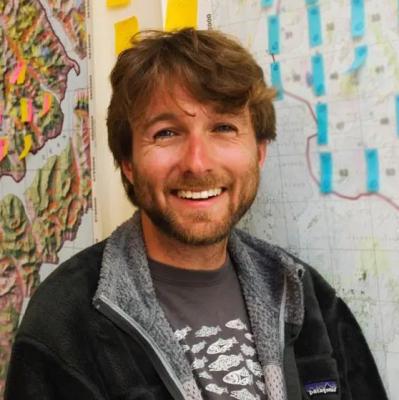
Research topic
Research Description
The world is facing a biodiversity crisis, with accelerating extinctions of species and reductions in their population sizes. Agriculture has been identified as one of the primary drivers of this crisis. As human populations increase, identifying ways to produce food while minimizing environmental impacts will be crucial for conserving biodiversity. This research will investigate the potential of biodiversity-supporting stewardship of intact areas (those that have not been converted to agriculture, industrial uses, cities, or similar) for providing both food security and biodiversity outcomes. This research will pair broad (continental) assessments with place-based inquiry (in Wáxv:w̓uísax̌vs Haíɫzaqv and the Okanagan Basin).
Why did you decide to pursue a postdoctoral fellowship at UBC? Did you consider other opportunities?
This research will benefit from, and reciprocally contribute to, the focus and direction of UBCO. As one of the only major University campuses in Canada to be created with explicit support and collaboration of local First Nations, and with an explicit vision since inception to support Indigenous-led work, the institutional focus would be well-suited for the project this award will support.
What specifically attracted you to your research group?
Dr. Bourbonnais's landscape ecology expertise is expansive, making him a well-known leader in the spatial ecology field. His particular interests in land use, food production, and UAVs in research would all contribute immensely to my planned research. In addition, his collaborations with ONA and broader-scale collaborations with Indigenous, provincial, federal, and academic researchers will provide a rich context for the proposed research.
What advice do you have for new postdoctoral fellows?
Each of our paths is so unique, I can't pretend to know what is best for other postdocs. For myself, although I recognize that as academics we are beholden to academic expectations, I also think that we have a huge responsibility to use the immense privilege of academia for societal benefits. For example through projects that contribute to on-the-ground work that benefits people and biodiversity, not just researchers or academia.
What do you like to do for fun?
Get outside!
What does receiving this award mean for your career?
I aim to build a career as a faculty member at a Canadian university, with an academic program linking ecological and human dimensions to understand how environmental governance can achieve benefits for people and environments alike. The collaborations this award will support will establish a foundation for this career and provide context for other inquiry planned or in progress.